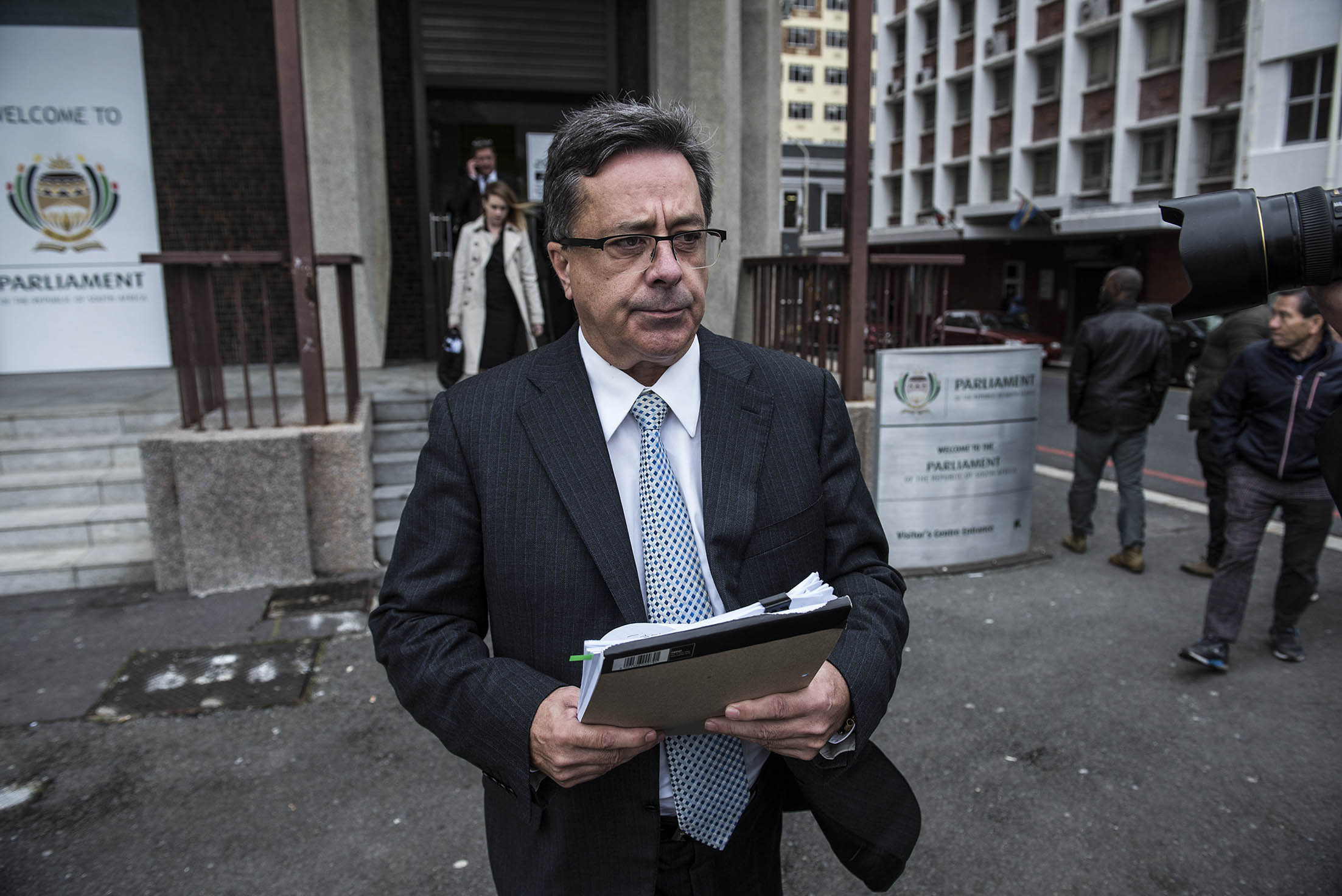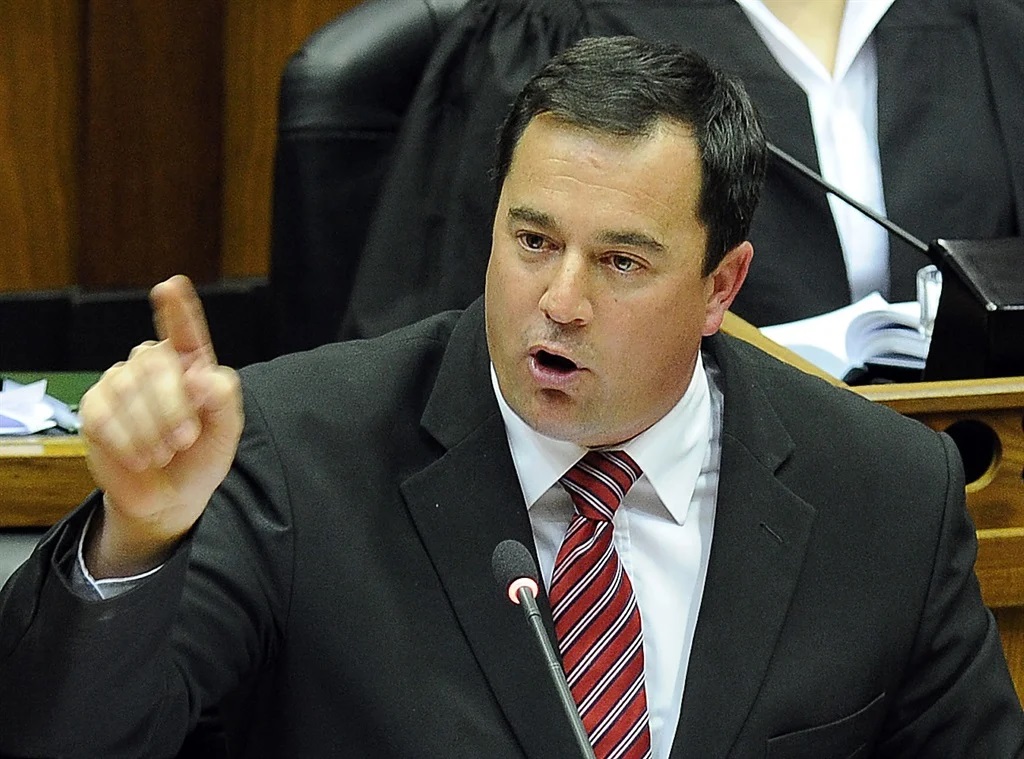 In the wake of Markus Jooste’s death, a torrent of conjecture concerning who might gain from his sudden absence has surged forth. The enigmatic demise, occurring amidst a whirlwind of legal entanglements and financial scandal, flung open the doors to rampant speculation. When German authorities issued an arrest warrant for Jooste, implicating him in fraudulent activities, a meticulous legal process ensued. With both South Africa and Germany being part of the European Extradition Convention, the prospect of Jooste standing trial on German soil was ensnared in legal complexities.
In the wake of Markus Jooste’s death, a torrent of conjecture concerning who might gain from his sudden absence has surged forth. The enigmatic demise, occurring amidst a whirlwind of legal entanglements and financial scandal, flung open the doors to rampant speculation. When German authorities issued an arrest warrant for Jooste, implicating him in fraudulent activities, a meticulous legal process ensued. With both South Africa and Germany being part of the European Extradition Convention, the prospect of Jooste standing trial on German soil was ensnared in legal complexities.
The intrigue deepened with the emergence of a letter during a search by the Hawks, South Africa’s Directorate for Priority Crime Investigation, at Jooste’s estate. Authored by John Steenhuisen, then the leader of the Democratic Alliance (DA), the letter was a gesture of acknowledgment for Jooste’s monetary support. This correspondence hinted at more than mere appreciation; it became a focal point for those suspecting that Jooste’s wealth, potentially amassed through dubious means, may have been funnelled into the DA’s coffers. Such suspicions cast a shadow over the DA, suggesting the party could have unwittingly become a silent accomplice to Jooste’s schemes.
Questions arose, thick with implication: Did Jooste’s untimely death serve to keep hidden the DA’s financial dealings and their possible roots in the misappropriated investments of the Government Employees Pension Fund (GEPF) within Steinhoff? While direct evidence eludes the narrative, the very insinuation weaves a tangled web of potential political protectionism in exchange for fiscal support, making the DA’s role a matter of Jooste’s death.

Markus Jooste’s rise and fall echoed the tumultuous storylines of classic tragedy. As CEO of Steinhoff International, he was the face of corporate triumph; his strategies and leadership were emulated and envied. Yet, in 2017, the discovery of “accounting irregularities” marked the inception of a catastrophic downfall. Steinhoff, once a corporate titan within Africa, teetered on the brink of disgrace, with Jooste at the epicentre of the ensuing maelstrom. This precipitous descent not only dethroned Jooste but also thrust Steinhoff into a mire of financial and ethical uncertainty.
The downfall of Steinhoff International became an emblem of the inherent dangers lurking in unchecked corporate governance, manifesting in a crisis that rippled through South Africa’s economic and political terrain. The GEPF, with its substantial investment in Steinhoff shares, was particularly stricken by the scandal, as the fund’s value plummeted, undermining the retirement security of millions of civil servants. This was not a nominal loss but a genuine fiscal emergency, revealing the intricate deceptions orchestrated under Jooste’s watch, as detailed in a PwC forensic report.
The GEPF’s crisis, however, was more than a financial debacle—it was a betrayal of public trust. With revelations of Steinhoff’s inflated profits and assets, over 100 billion rand of wealth was unmasked as illusory. Amid the fallout, the relationship between Jooste and the DA came under scrutiny, further complicated by allegations of the latter benefiting from Jooste’s largesse. The party’s integrity was called into question as it navigated the fallout from these revelations, prompting a broader discourse on the funding of political entities.
As the DA battled public perception and internal reckoning, the South African Reserve Bank took decisive steps. It sought to secure Jooste’s assets, an act that included the Lanzerac Wine Estate, aiming to salvage what could be from the Steinhoff disaster. This was a clarion call for accountability, emphasizing that the consequences of corporate misdemeanours would not be confined to boardrooms but would be felt across the social spectrum.
The Steinhoff scandal, interwoven with the politics of the Democratic Alliance, continues to unfold a narrative replete with questions about governance and the sanctity of democratic values. While the dust has yet to settle, and the full ramifications of Jooste’s secretive financial and political dealings remain opaque, the ongoing probes inch closer to revealing the beneficiaries of his death, and his death was a part of a calculated silence.









